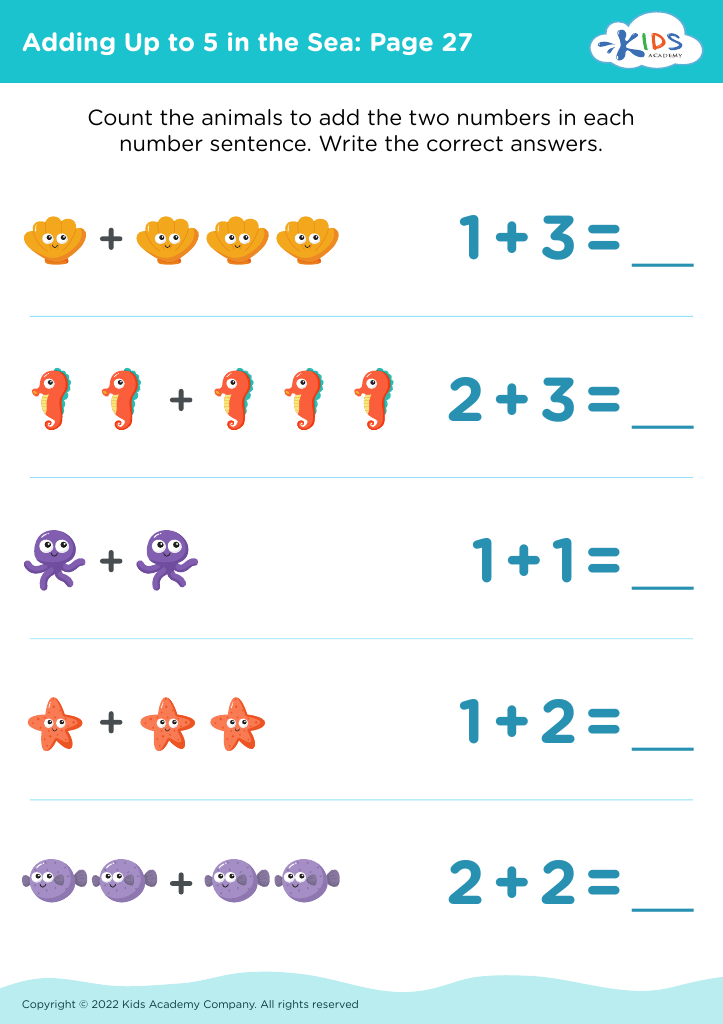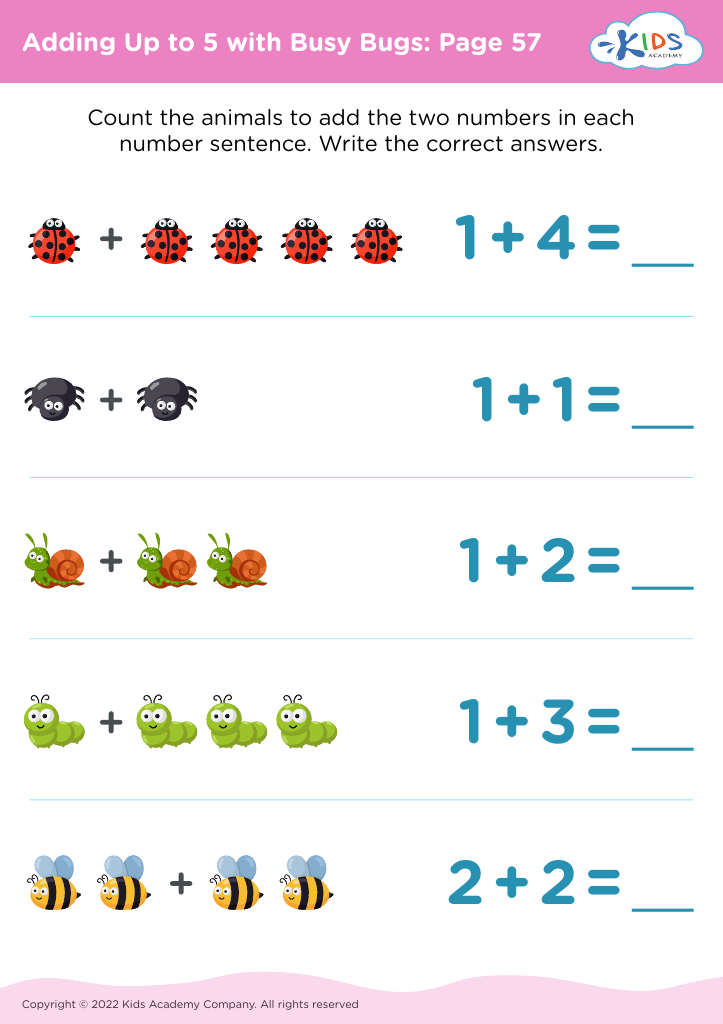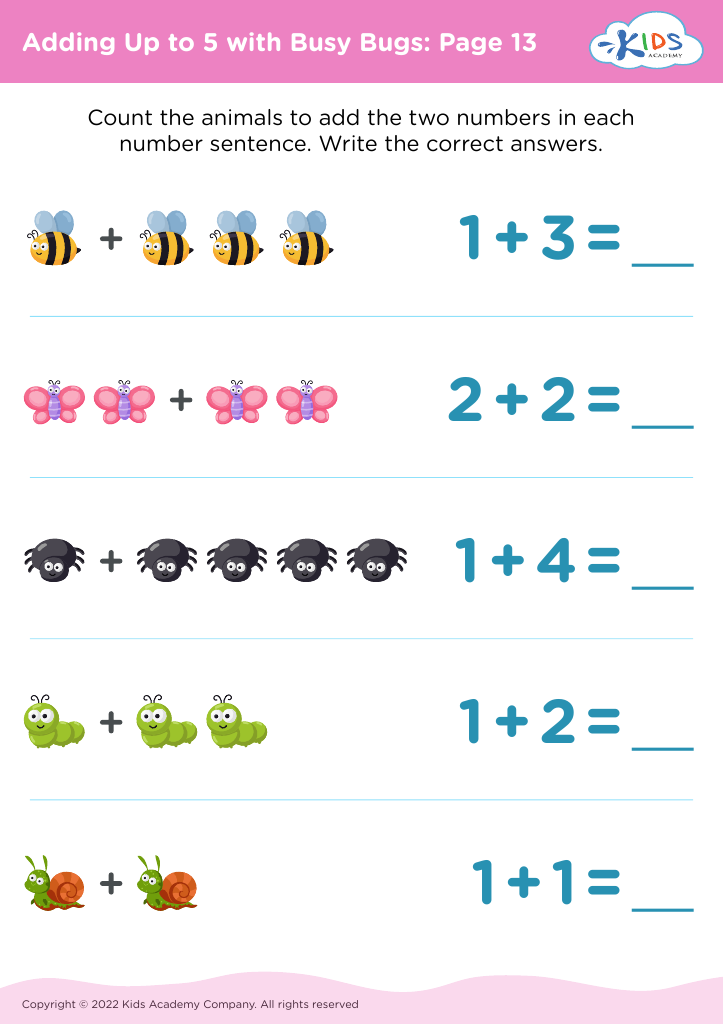Understanding numbers Addition Worksheets for Ages 3-7
4 filtered results
-
From - To
Discover our "Understanding Numbers: Addition Worksheets for Ages 3-7," meticulously crafted to nurture young learners' math skills in an engaging and fun way. These vibrant printable worksheets guide children through the basics of addition, fostering confidence and laying a strong numerical foundation. Designed for preschoolers, kindergarteners, and early graders, the activities incorporate colorful images and playful scenarios to captivate young minds. Perfect for home, school, or both, our resources help children grasp fundamental addition concepts at their own pace, turning learning into an enjoyable adventure. Download today and watch your child’s math skills flourish!
Understanding numbers and addition at an early age, specifically between ages 3 to 7, is critical for a child’s overall cognitive development. At these formative stages, children’s brains are highly receptive and capable of grasping fundamental concepts that serve as building blocks for future learning.
Numbers and basic addition lay the foundation for mathematical literacy, which is essential not just for higher math but also in numerous aspects of everyday life. Early exposure helps children develop numerical fluency, enabling them to understand quantities, make comparisons, and recognize patterns. These skills are directly related to problem-solving and logical reasoning, competencies that are crucial across academic disciplines and in real-world situations.
Moreover, early mastery of numbers and addition boosts a child’s confidence and curiosity in mathematics, often influencing their attitude towards the subject throughout their education. Children who feel competent in these basic skills are more likely to enjoy engaging with more complex mathematical concepts later in life.
For teachers and parents, fostering an environment where number learning is encouraged can be fun and interactive. Simple activities like counting objects, playing with number blocks, and interactive games both online and offline can make learning enjoyable. This nurturing support not only aids in academic achievement but also cultivates a lifelong appreciation and excitement for learning.


























